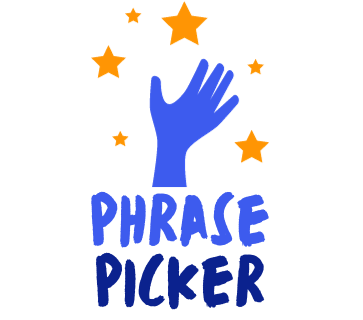Introduction
In the vast landscape of human communication, certain phrases stand prominently as communicative tools of understanding — among these, the phrase ‘I hope you understand’. Its use might seem mundane, but in reality, it carries within its simple structure a world of implications, contexts, and meanings. This article dives into the subtle complexities of this everyday phrase, exploring its varying usages across different scenarios, and suggesting alternative expressions that hold the same essence. Immerse yourself in this fascinating exploration of language, and, as the saying goes, ‘I hope you understand’.
Key Takeaways
- The phrase I hope you understand can be used as a polite way of expressing something might be hard to digest or complex.
- This phrase can also be utilized when delivering news or information that could potentially upset or disappoint the receiver, showcasing empathy and respect.
- Alternative phrases to use can include, I trust this is clear, I hope this makes sense, or Please let me know if anything is unclear.
Other Ways to Say “i hope you understand”
- I trust you comprehend.
- I assume you grasp the concept.
- I anticipate you get it.
- I envision you perceive.
- I presage you apprehend.
- I expect you realize.
- I reckon you get the idea.
- I hope this is clear to you.
- I suppose you’ve got the picture.
- I presume you fathom.
- I aspire you discern.
- I hope this makes sense to you.
- I conjecture you see where I’m coming from.
- I believe you understand the gist.
- I think you catch my drift.
A More Formal Take on ‘I Hope You Understand’
Often, we turn to ‘I trust you comprehend’ as a more formal variant of the phrase ‘I hope you understand.’ Some other alternatives can include phrases like ‘I am hopeful you grasp the concept’ or ‘I trust this is clear to you.’ Choosing a more formal variant serves various purposes. It elevates the conversation to a more professional level, portrays a higher respect for the recipient, and also implies a sense of seriousness or urgency. Furthermore, it can also be submissive and non-imposing, hence preventing any possible misunderstandings or conflict.
Dear Sir/Madam,
I am writing to inform you of a few changes we need to implement concerning the project we are currently working on. Owing to unforeseen circumstances, we shall have to alter our action plan and timeline for delivery.
I trust you comprehend the necessity of these alterations, and I am more than willing to discuss them further with you at your earliest convenience.
Thank you for your understanding and support.
Kind regards,
How To Answer Formal
When communicated effectively, the phrase ‘I hope you understand’ forms part and parcel of respectful, assertive communication. Understanding its nuances can aid in both personal and professional relationships. In formal settings, it’s typically used to ensure the message is comprehended without any sense of ambient ambiguity. A response such as ‘I appreciate your explanation, and I do understand the points you’ve raised’ validates the speaker’s efforts to clarify and indicates that their words have been comprehended.
Alternatively, if you’re the one using the phrase ‘I hope you understand,’ you could rephrase it with more concrete and direct expressions. For instance, ‘I trust this matter is clear’ or ‘I believe this clarifies the situation’ are appropriate alternatives. In doing so, this implies a sense of anticipated understanding, promoting effective communication.
- ‘Yes, I do understand and thank you for the clarification.’
- ‘Your point is well taken, and I understand where you’re coming from.’
- ‘Indeed, I understand the importance of this task.’
- ‘Certainly, I grasp the severity of the situation.’
Email Response to ‘I hope you understand’
Dear Sender,
Thank you for your recent communication. I have indeed comprehended the information you have provided and appreciate your concern in ensuring my thorough understanding.
Please do not hesitate to contact me should you require any further assurances or if there is additional information to be communicated.
Sincerely,
Your Name
I Trust You Get The Picture
Informality is often treasured in communication as it fosters a sense of closeness and comfortability. The phrase, ‘I hope you understand,’ though respectful, can sometimes sound too formal, especially when talking to friends or family. In such cases, we can use more relaxed interpretations like ‘I trust you get the picture’, ‘You get me, right?’ or ‘You catch my drift?’. Using these informal variants can bring warmth to the conversation and instil an atmosphere of camaraderie. Furthermore, employing these expressions might help prevent the discourse from becoming too intense or demanding, thereby maintaining a friendly and amicable dialogue.
Hi,
I wanted to take a moment to elaborate on the project deliverables we discussed during our last meeting. We are looking at a fairly aggressive timeline, but I believe with adequate distribution of tasks and commitment, we should be able to hit the deadlines without too much stress.
The specifics are as follow: we need to start by conducting preliminary research and data collection. This will be followed by analysis, presentation of the findings, and finally drafting and submitting the report. This will all need to happen within the next four weeks.
I trust this makes sense and if you have any questions or need clarification on any point, please feel free to get in touch.
Best,
Your Name
How To Answer Informally
When someone says ‘I hope you understand‘, they are expressing a desire for the listener to comprehend and accept what was said to them. Informally, there are numerous ways to respond affirmatively. For instance, one might say ‘Gotcha‘, ‘No worries‘, or even a simple ‘Sure‘. The context of these responses is typically in an informal conversation, such as between friends or close colleagues. Bold affirmations, like ‘Crystal clear‘, can be used to not only agree but to reassure the speaker that you have understood their point completely.
However, if you didn’t comprehend the message, you could say ‘I’m not quite following‘ or ‘Could you say that again?‘ It’s always preferable to ask for further clarification than to pretend to understand something you don’t. In more informal settings, you may get away with responses such as ‘You’ve lost me‘ or ‘Run that by me again‘.
- Gotcha
- No worries
- Sure
- Crystal clear
- I’m not quite following
- Could you say that again?
- You’ve lost me
- Run that by me again
Dear John,
Thank you for your message. Yes, I have fully understood your point. I appreciate you taking the time to explain the situation to me.
Should there be further matters you’d like me to be aware of, do not hesitate to let me know.
Kind regards,
Alex
Is It Correct to Say “i hope you understand”?
So, is it correct to say ‘I hope you understand’? Yes, it absolutely is. It’s a common phrase that people often use in both formal and informal conversations to emphasise the importance of what they’re saying and to ensure that the person they’re speaking with understands their point. However, the phrase’s politeness or rudeness can heavily depend on the tone and context in which it is used.
The phrase can be seen as respectful when used in a sensitive conversation where the speaker wants to make sure their message is clear without coming off as domineering or condescending. But on the other hand, if the phrase is used with a harsh tone or in a condescending way, it could be taken as rude or dismissive. Therefore, while the phrase itself is neutral, it’s the way it’s delivered that can alter its interpretation.
In conclusion, ‘I hope you understand’ can be a very useful phrase when used appropriately. It conveys a desire for mutual understanding and respects the intelligence of the listener. Like any other phrase or tool in language, it’s all about how and when you use it. Through this article, it is our greatest hope that you’ve gained a better understanding of how to use the phrase ‘I hope you understand’.



